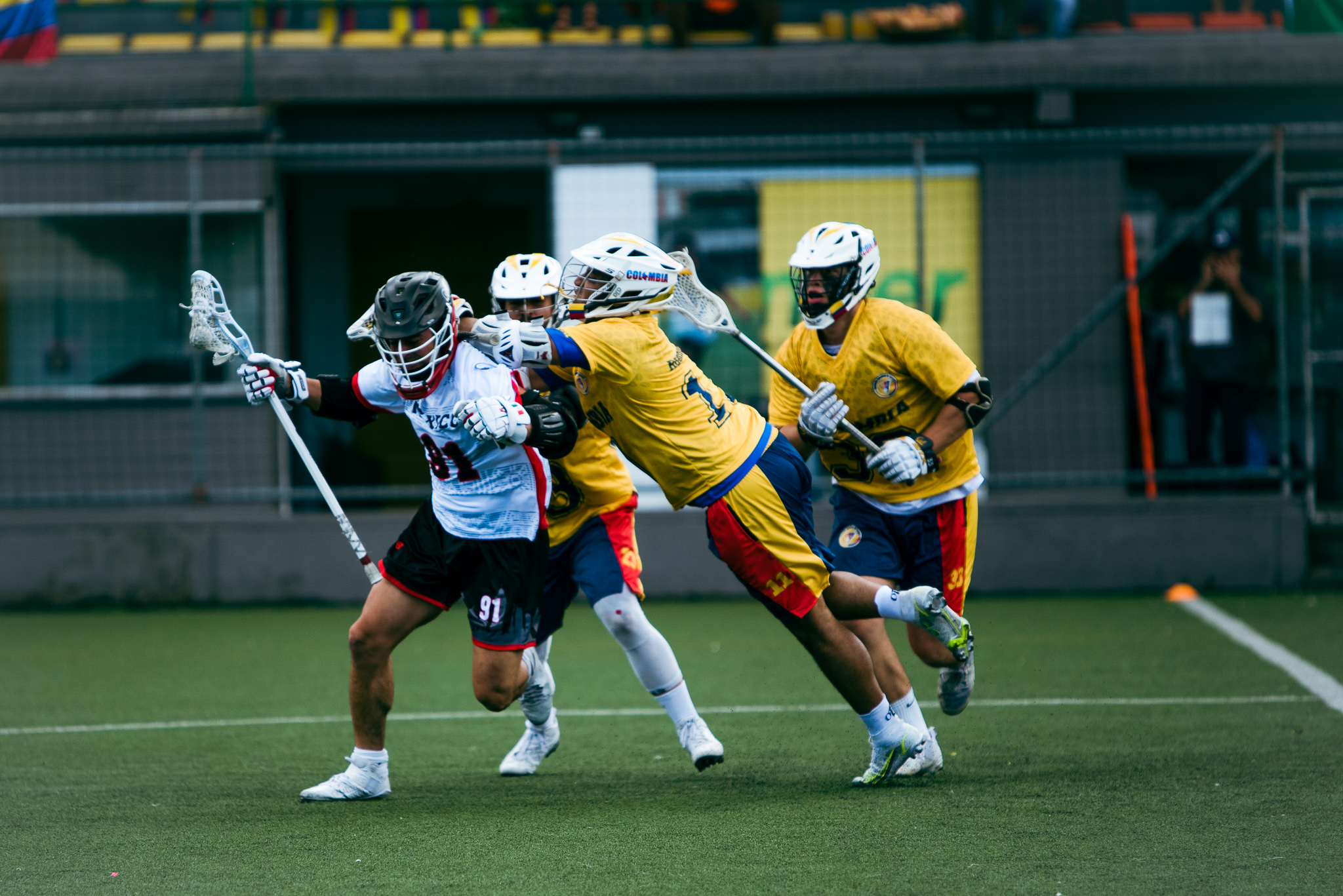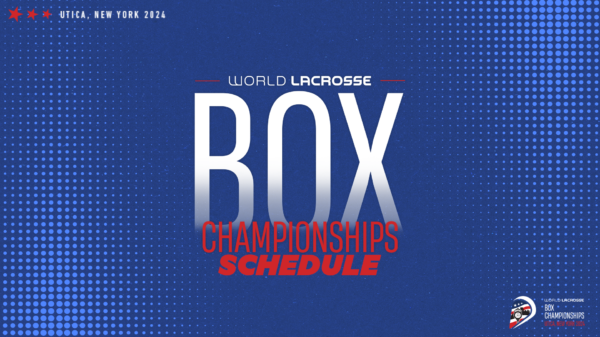World Lacrosse is highlighting the journeys of teams that qualified for the 2023 World Lacrosse Men’s Championship, set to take place in San Diego in June.
Mexico made its World Lacrosse championship debut at the men’s championship in 2010, just 12 years ago, and finished as high as 23rd in 2014. The program is most recently coming off a 38th place finish at the 2018 Men’s Championship in Israel.
With the 2023 Men’s Championship limited to 30 teams and a qualification process for the first time, Mexico knew it had an uphill battle to not just get back to the highest level of the sport, but to prove it could do better than its finish in 2018.
“We just had to get back there,” said Jake Padilla, a member of the Mexican National Team and a current assistant coach in NCAA Division I. “The whole journey had a redemptive arc.”
Before getting to 2022, consider the program’s origins. In 2009, Mexico Lacrosse was started by students from four universities who had little experience in lacrosse, and the team was coached by two brothers, Andrew and Carl Haas, who were teaching English to Mexican students at the time. A year later, the team competed at the 2010 Men’s Championship and finished 29th out of 29 teams in attendance.
For Mexico, a relatively young federation in the lacrosse landscape, growing lacrosse at the grassroots level is a slow process. The federation has competed in a tough region by maximizing its talent within the roster rules. Mexico has aggressively tried to recruit players with Mexican citizenship and filled its allocated spots for those without citizenship with players with varying degrees of NCAA lacrosse experience.
The goal is to grow a talent pool of Mexican-born and Mexican-developed players, and success in the 2014 Men’s Championship – when Mexico finished the best among Latin American teams – helped boost visibility of the sport.
Despite a disappointing showing in 2018 for Mexico’s increasing standards, there were 30 university programs in Mexico developing lacrosse players. Then the pandemic hit in 2020, and that number went down to two.
That made putting a team together for the 2023 qualification cycle tricky. Mexico was able to send two teams to Boston to compete at the Heritage Cup in May of 2022. One team was a younger squad full of homegrown Mexican players, a win for development in the federation, and another was a senior team that was effectively using the event as training for qualification a few months later in Colombia.
“It was the first time we worked together, and we needed to develop our chemistry,” said Padilla. “We had some elite players, but it took time to find our playing style and the right mix in our squad.”
Mexico arrived in Medellín in July ready for a challenge. Four teams were going to qualify for six spots, but Mexico knew it would have to win a game against a tough opponent to seal its spot in San Diego – five of the teams in the field had competed at the last championship in 2018.
The competition started with a 10-5 loss against Puerto Rico, the eventual champion of the event. In the next game, Mexico narrowly lost, 10-8, to Peru, which had finished one spot behind Mexico at the last world championship in a game the team thought it could have won.
The results set up an effective play-in game for San Diego against host Colombia, which had hung tough with eventual silver medalist Jamaica and recorded a narrow win against a strong U.S. Virgin Islands squad.
Mexico jumped out to an early lead, but the game took a turn when two players suffered injuries that led to more than 20 minutes of stoppages within just 10 minutes of each other. And Colombia then stormed back to within one.
“A lot of teams could have collapsed,” said Padilla. “The group was down against it, but the credit goes to the players and a remarkable sense of family. We banded as a squad and got over the hump.”
Mexico pulled away for a cathartic 14-7 win, and there were tears on the field for what it meant, especially to the homegrown Mexican players who never thought they could find themselves at a world championship.
“It really was the heart of Mexico that came through,” said Padilla. “I know it’s cliché, but of all the clubs I’ve been around – there was never a sense of family like this, a sense of fighting tooth and nail for the family around you.”
The win put Mexico back in the field for the premier international men’s event in the sport, and it opens a world of possibility for the future of the sport in the country. The Mexican community in and around San Diego will likely turn out in strong numbers to support its team, adding another layer of pride and excitement for the program.
The success of qualification was also a testament to years of effort from the Haas brothers, who had grown the men’s team from the program’s inception.
“These two deserve so much credit for being incredible leaders,” said Padilla. “They formed a connection 12 years ago with the students they were teaching English to. They have been volunteers the whole time, the guys you could say were given lint in their pockets, and they just went about doing the work.”
The journey through the first ever qualification cycle for a World Lacrosse championship was rewarding, but the team is ready to prepare for 2023 with “laser focus.” Padilla believes the group isn’t happy with how narrow the margins were in qualifying and that the opportunity to make waves in San Diego is there for the taking.
Padilla himself has worked his way through the lacrosse coaching ranks, going from high school to stints in NCAA Divisions II and III and eventually a Division I job, including time at Rutgers University, a Division I program in the Big Ten.
“I mean it when I say this about all the lacrosse that I’ve been through in my lifetime. This has been the most gratifying journey to be a part of.”






